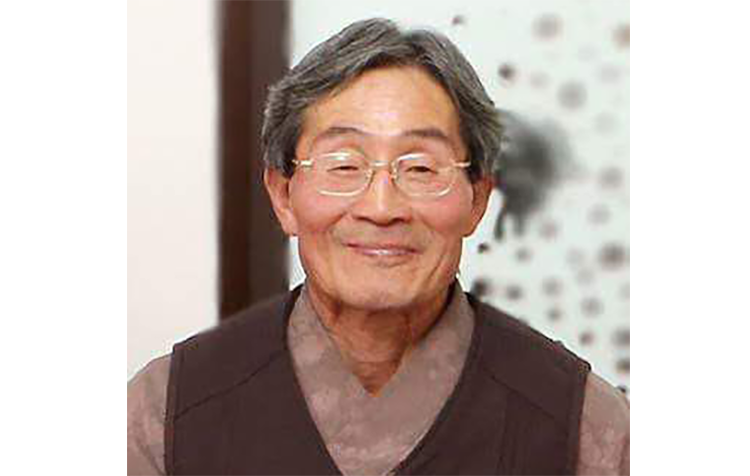(Bangkok, 3 October 2016) – The Asian Forum for Human Rights and Development (FORUM-ASIA) is deeply saddened by the death of Nam-gi Baek, a 70-year old activist farmer. Baek had been unconscious after being hit by a police water cannon during a peaceful protest in Seoul on 14 November 2015. FORUM-ASIA strongly condemns the failure of the Government of South Korea to conduct a thorough, impartial, and independent investigation into the excessive use of force by the police, especially the lethal use of a water cannon. The regional human rights group also urges the Government of South Korea to respect the will of Baek’s family not to have an autopsy performed on the body and to bring those responsible for Baek’s demise to justice without further delay.
On 25 September 2016, Baek passed away after being shot by a police’s water cannon on 14 November 2015 and 317 days in a coma. Baek’s death was caused by a traumatic cerebral haemorrhage, directly linked to the injuries he sustained from the water cannon used by the police. An initial request for an autopsy warrant was rejected by the Seoul Central District Court, but the police and Prosecutor’s Office resubmitted the warrant, which was then issued by the same court that initially deemed the request unnecessary and unjustifiable. Baek’s family has consistently and explicitly refused to have an autopsy.
On 18 November 2015, Baek’s family filed a criminal complaint against seven alleged perpetrators, including the then National Police Agency Commissioner General, Kang Sin-myung and Chief of Seoul Metropolitan Police Agency, Koo Eunsoo. The Prosecutor’s Office only interviewed Baek’s daughter as a complainant, but nothing else has been done in the last 10 months. A hearing held by the Security and Public Administration Committee of the National Assembly on 12 September 2016 confirmed the excessive use of force by the police on 14 November, including against Baek. However, the then Police Commissioner General Kang refused to accept these findings and did not apologise to Baek’s family, instead blaming the protesters for the incident.
Nam-gi Baek, former Vice-Chairperson of the Korean Catholic Farmer Movement, joined the 14 November 2015 rally along with 130,000 other people in Seoul. The farmers who participated in the protest were unarmed and mostly elderly. Video footage shows that Baek was knocked to the ground by a high-pressure water cannon. His friend testified that he tried to negotiate with the police in front of the barricade after they started using water cannons against the protesters, which caused him to be separated from the others.[1]
It was reported that around 182 tons of water was blasted from the water cannon and 651 litres of tear liquid was sprayed indiscriminately on the protesters.[2] The blanket, indiscriminate, and unjustified use of water cannon against protesters on 14 November 2015 by the authorities is a violation of both domestic and international standards. Article 13 of the Presidential Decree on Standards of the Usage of Lethal Force Equipment and Section Two of the Operational Instruction on Water Cannons state that a water cannon is only allowed to be used below the chest, as well as that when protesters are injured the police should immediately provide emergency aid. Under international human rights standards, authorities should “use force only when necessary and to the extent required for the performance of their duty”[3], and “should not resort to force during peaceful assemblies and ensure that where force is absolutely necessary, no one is subject to excessive or indiscriminate use of force”.[4]
‘All that happened to Nam-gi Baek from him being hit by the blasts from the water cannon to his passing and the ignoring of his family’s request for there not to be an autopsy is an exemplary display of impunity,’ says Mukunda Kattel, Director of FORUM-ASIA.
FORUM-ASIA also echoes the key recommendations from the 2016 mission report to South Korea from the UN Special Rapporteur on the right to freedom of peaceful assembly and association, Maina Kiai, which urged the Government of South Korea to “review tactics used for the management of assemblies – including the use of water cannons and bus barricades – to ensure that they are not applied indiscriminately or against peaceful protestors, and provide adequately trained and experienced police officers to manage assemblies”.[5]
‘The Government of South Korea must respect the will of Baek’s family not to have an autopsy performed on his body. It should conduct a thorough, impartial, and independent investigation into the use of excessive force by the police, especially the lethal use of water cannon, and bring those responsible for Baek’s death to justice without further delay. The right to freedom of peaceful assembly must be guaranteed by the Government of South Korea in accordance with international human rights standards as it is one of the key cornerstones of a democratic society’, concludes Mukunda Kattel.
***
For a PDF version of this statement, please click here.
For further information, please contact:
- Human Rights Defenders Programme, FORUM-ASIA, [email protected]
- East Asia Programme, FORUM-ASIA, [email protected]




